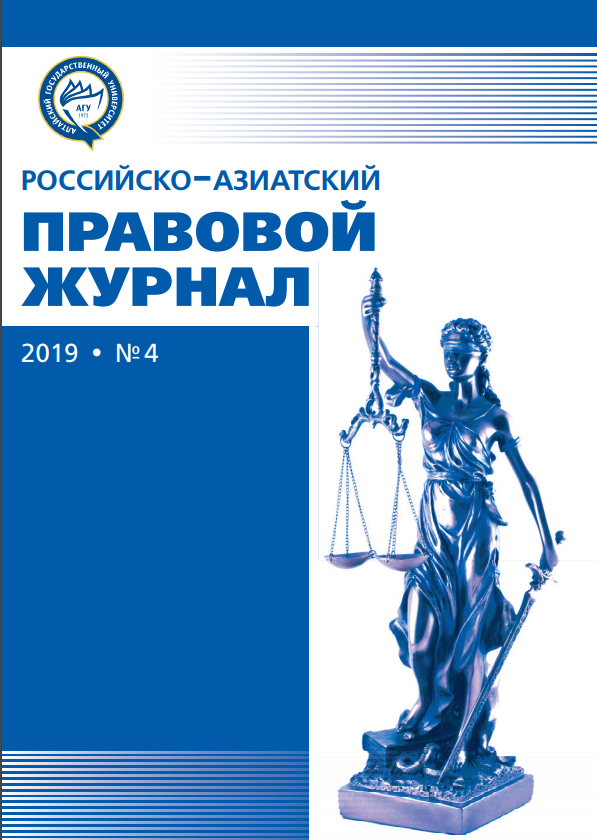LEGAL CERTAINTY AS AN EVALUATIVE CATEGORY IN CIVIL PROCEEDINGS
УДК 347.91/.95 ББК 67.410
Abstract
The article explores the effect of the legal certainty of civil procedure legislation and its application onthe creation of appropriate conditions for the effective implementation of justice. It is stressed that the lack of legal certainty, namely, its opposite — legal “uncertainty,” creates both legislative conflicts and, even moresignificantly, law enforcement problems, which significantly reduce the accessibility of justice to personsin need of judicial protection. The courts used different procedural rules, using a formalistic approach,jeopardizing the delivery of a lawful and justified judicial act. In order to overcome the state of legaluncertainty and, as a result, to improve the efficiency of legal proceedings, it is necessary to use techniquesof legal technique that do not lead to the emergence of causal rules of law. The model of the most generalrules is capable of being applicable to any emerging procedural situation, taking into account systemic andtargeted modes of interpretation. It is this approach to the construction of the system of legislation, togetherwith the subsequent application of the rules on the basis of internal conviction and judicial discretion, thatwill ensure the unity of judicial practice.
Downloads
References
Рехтина И.В. Многоаспектный характер категории «правовая определенность» в постановлениях Конституционного Суда Российской Федерации // Российский судья. 2019. №7. С. 51–55.
Треушников М.К. Судебные доказательства. М., 2004. 272 с.
Боловнев М.А. Противодействие злоупотреблениям гражданскими процессуальными правами. Барнаул, 2018. 220 с.
Журбин Б.А. Групповые и производные иски в судебно-арбитражной практике // СПС «Гарант»,
Сборник постановлений Пленумов Верховного Суда и Высшего Арбитражного Суда Российской Федерации по гражданским делам / сост. А.П. Сергеев. М., 2000.
Russian-Asian Law Journal is a golden publisher, as we allow self-archiving, but most importantly we are fully transparent about your rights.
Authors may present and discuss their findings ahead of publication: at scientific conferences, on preprint servers, in public databases, and in blogs, wikis, tweets, and other informal communication channels.
Russian-Asian Law Journal allows authors to deposit manuscripts (currently under review or those for intended submission) in non-commercial, pre-print servers such as ArXiv.
Authors who publish with this journal agree to the following terms:
- Authors retain copyright and grant the journal right of first publication with the work simultaneously licensed under a Creative Commons Attribution License that allows others to share the work with an acknowledgement of the work's authorship and initial publication in this journal.
- Authors are able to enter into separate, additional contractual arrangements for the non-exclusive distribution of the journal's published version of the work (e.g., post it to an institutional repository or publish it in a book), with an acknowledgement of its initial publication in this journal.
- Authors are permitted and encouraged to post their work online (e.g., in institutional repositories or on their website) prior to and during the submission process, as it can lead to productive exchanges, as well as earlier and greater citation of published work (See The Effect of Open Access).








